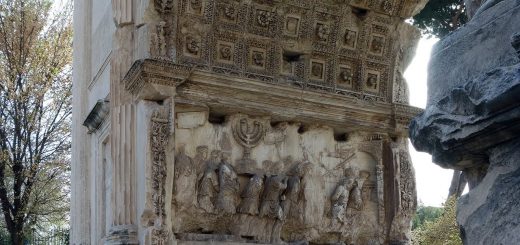Misguided Markings

In slow but clear Hebrew and with an endearingly wry smile, the elderly Jewish lady recalls a trip to America one summer with her sister. At a bank, she recounts, the teller, a young woman, said to her. “Oh, you have numbers on your arms! Yours ends with a ‘4’ and hers with a ‘5’!” That’s cool!”
The bubbeh’s smile widens and her eyes seem to twinkle as she recounts her response to the girl. “You’re right,” she quietly told her in English. “It’s cool… It’s from another epoch of our life. It’s cool.”
The testimony is offered in a documentary film, “Numbered,” whose US premiere is scheduled for later this month at a Chicago film festival. The film’s focus, however, is not so much on the cluelessness of young Americans but rather on the attitudes of different tattooed survivors to the memory-marks they carry day-in, day-out on their arms. And on the recent trend among some young Israelis who seek to perpetuate a connection to the Holocaust and the Jewish people by tattooing their own arms with numbers borne by concentration camp inmates.
According to the US Holocaust Memorial Museum’s Encyclopedia of the Holocaust, such tattooing was introduced at Auschwitz in the autumn of 1941 and in Birkenau the following March. After the war, some survivors whose arms bore the inked record of their ordeals sought to remove the reminders. Others wore them with pride.
A well-known teshuvah, or responsum, by Rav Ephraim Oshry (She’eilos Uteshuvos Mima’amakim, 4:22) advised a woman who wished to have her concentration camp tattoo surgically removed to regard it instead as a badge of honor. It is told that Rav Yoel Teitelbaum, zt”l, the Satmar Rov, once counseled a follower seeking a blessing to go into a shul and find a man with numbers inked into his skin; such a person, the Rov explained, is worthy of providing a meaningful bracha.
But the thought of Jews today electing to subject their bodies to markings like those the Nazis and their collaborators used to dehumanize their forebears grates—or should grate—like a knife run across the edge of a glass.
And indeed, there has been no dearth of criticism of the newly number-tattooed. Their actions have been labeled a fashion-statement hijacking of the Holocaust; characterized as an effort to usurp others’ identities; condemned as a trivialization of the horrific.
The contemporary Holocaust remembrance enterprise is, to be sure, deeply inappropriate, but—in the manner of the Berditchever’s spirit of seeing good in all Jews—it, or at least the motivation behind it, might be regarded more generously.
Ten young number-tattooed Jews interviewed by The New York Times last month, in the reporter’s words “echoed one another’s motivations: they wanted to be intimately, eternally bonded to their survivor-relative. And they wanted to live the mantra ‘Never forget’ with something that would constantly provoke questions and conversation.”
Worthy goals, if misguided means. What is mostly missing, though, from all the criticism is what should be the most fundamental one: that a tattoo—even a well-intentioned one—is forbidden by the Torah.
“You shall not make a cut in your flesh for the dead,” it states, “and a tattoo you shall not place upon yourselves—I am Hashem” (Vayikra, 19:28). And that prohibition remains even—one might argue especially—if one’s intentions are sublime. For the opinion of R. Shimon ben Yehudah in the name of R. Shimon (Makkos 21a) is that the phrase “I am Hashem” implies that the prohibition specifically refers to a tattoo of Hashem’s name!
And so an irony practically screams out here. Klal Yisrael is only a nation by virtue of the Torah. Throughout all of the vicissitudes of our history and all the challenges our people has faced, what has always ensured our survival, indeed, our eternal nature, is that which bonds us to our Creator: the study and practice of Torah. Those are the keys to Jewish unity and Jewish eternity.
Pity the newly number-tattooed. Not only are they unintentionally punishing their Jewish souls by their actions, they are undermining the very things—memory, their historical heritage, Jewish peoplehood—that they seek to preserve.
© 2012 AMI MAGAZINE
The above essay may be reproduced or republished, with permission and the above copyright appended.
Communications: [email protected]
Subscribe to Ami at http://amimagazine.org/subscribe.html



Recent Comments